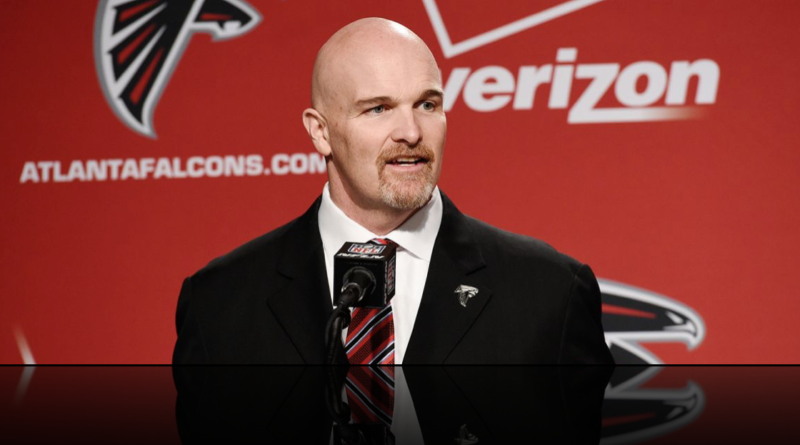Falcons are the team of the future, maybe not now
It may be the oldest, most overused cliché in team sports: “We’re taking ‘em one game at a time.”
You dare not think about any game except the one coming up. Otherwise you get caught “looking ahead,” and you get beat by a team that’s not as good as yours.
But Dan Quinn, coach of the Atlanta Falcons, admits he started preparing for the Super Bowl when his team had a bye week in the first round of the NFL playoffs.
“I didn’t share that with the staff,” he told ESPN. “But I did do the planning ahead. . . . It was during that bye time that we put the plan together in terms of the structure of how it would work for the next few weeks.”
So far, it has worked to perfection. The Falcons routed Seattle, Quinn’s former team, in the divisional round and the Green Bay Packers in the NFC Championship.
The New England Patriots are 3-point favorites in Super Bowl 51, in Houston a week from Sunday. The reason the Patriots are favored is that they’re steeped in Super Bowl experience, having played in six of them, winning four, during the past 15 years.
The Falcons, who before the season began were a 100-1 shot to win the Super Bowl, have only four players who have ever played in one. They have 13 starters who are 26 or younger. They are starting four rookies and four who are second-year pros. They are a rapidly improving team, and any coach looking to the future would want their roster.
But they have not been to the Super Bowl since 1999, when they lost to Denver, which had won the Lombardi Trophy the year before. The question is whether they’re too young to win it this year.
Why is Super Bowl seasoning so important?
It’s not so much the pressure in the game itself. Any team that makes it that far has already overcome intense stress again and again. The problem is the drastic change of routine. Football players more than athletes in any other sport are regimented into a consistent pattern of practice and preparation.
That routine is drastically altered when they reach the ultimate destination. This is America’s most mediacentric sporting event. Linemen who have had little contact with reporters are thrust into a melee they’re unprepared to face. One ill-chosen word can create a media firestorm.
Even more disconcerting is the deluge of requests from relatives and friends hoping for tickets that are valued at upwards of $4,000 apiece. There’s no pressure like family pressure.
Super Bowl novices are likely to be overwhelmed and unsettled. Sometimes, seeking relief from the pressures, they opt for a night on the town, and sometimes they get into trouble. And when that happens, distraction occurs that can unsettle the entire team.
Some coaches are so obsessed with distraction that they sequester their players in a remote location and impose strict curfews. That was the strategy of the former Buffalo Bills coach Marv Levy. It did not work. His teams lost four consecutive Super Bowls, 1991-94.
The team that’s committed to avoiding distraction is worrying too much about it and is therefore distracted from the main task at hand.
But if Atlanta’s players lack postseason mettle, the same cannot be said of their coach. Before he became Falcons head coach in 2015, Quinn was coordinator of the league’s best defense, Seattle, in back to back Super Bowls. The Seahawks won one of them and barely lost the other.
The Falcons entered the postseason with an offense that analytics mavens rate as one of the seven best in league history. This is a team that averaged 34 points per game and has scored at least 33 in six consecutive games.
The question is the defense. It was shabby throughout the regular season. Atlanta ranked 25th in total defense. New England ranked eighth.
But Quinn used the postseason bye week to make changes. He basically wrested control of the defense from coordinator Richard Smith, who had been only a positions coach (linebackers) in four years in Denver before becoming Quinn’s defensive coordinator last season.
Smith has not excelled at matchups or at creating consistent pressure on the opposing quarterback. Until the postseason the Falcons had only one steady pass-rusher, linebacker Vic Beasley Jr., who led the league with 15.5 sacks.
Quinn, who wants his defense to create mayhem, shifted the disappointing 2014 second-round draft pick (early second), Ra’Shade Hageman, from tackle to end, where he could get a cleaner shot at the quarterback.
Hageman last March was charged with violating Georgia’s statute prohibiting cruelty to children. He was suspended for the season opener as the NFL office investigated the alleged domestic violence. He was then permitted to play, though his case remains open.
Hageman seemed confused and lethargic throughout the regular season, as he was the previous two years, but Quinn shook him out of the torpor.
In the two postseason games he’s produced one sack, two quarterback hits and three tackles for loss.
Quinn called for more blitzing. In the 44-21 victory over Green Bay, undrafted rookie Brian Poole from his nickel-back position hit Aaron Rodgers twice on blitzes.
Two other rookies, linebackers Deion Jones and DeVondre Campbell, who usually operated strictly in coverage, joined the pass rush. They each contributed a hit on Rodgers, who was sacked twice and was hit a total of seven times, even though his offensive line was rated by Pro Football Focus as No. 1 in protection.
Against Seattle the week before, the Falcons sacked Russell Wilson three times and hit him seven times.
This is clearly a surging defense. With a coach who probably knows how to get a young team ready for its greatest challenge. By looking ahead.
Alan Truex formerly covered the Falcons/NFL beat for the Atlanta Journal

